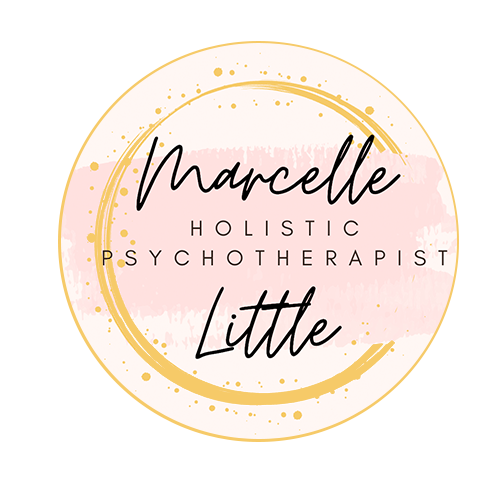10 Ways Individual Therapy Can Deepen Self-Awareness and Foster Personal Growth
In a fast-paced world that rarely leaves space for reflection, individual therapy offers a powerful invitation to slow down, turn inward, and truly understand yourself.
In my practice, I offer a trauma-informed, somatic, and depth-oriented approach to therapy—helping clients explore the deeper roots of their challenges, reconnect with inner wisdom, and transform old patterns. Therapy isn’t just about symptom relief; it’s about fostering self-awareness, resilience, and authentic growth.
We work collaboratively to integrate the body, emotions, and mind—drawing from somatic therapy, mindfulness, EMDR, parts work, and relational and depth psychology. Together, we uncover the source of what’s holding you back and transform it into wisdom that supports your ongoing growth.
Here are 10 ways individual therapy can deepen your self-awareness and foster personal growth:
1. Understanding Your Emotions
In therapy, we create space to explore your emotional world with curiosity and compassion. Many of us were never taught how to recognize or process emotions in a healthy way—especially if we’ve experienced developmental trauma, emotional neglect, or relational wounding.
Together, we work to befriend your emotions—so they become a source of wisdom rather than something to fear or avoid. You’ll begin to name emotions more clearly and understand how they show up in your body, relationships, and behaviors.
👉 Here’s a helpful Emotion Wheel we often use in session to expand emotional vocabulary.
2. Identifying Patterns in Your Behavior
Often, the ways we cope or relate to others are shaped by old patterns and protective strategies that may have once helped us survive—but no longer serve us today. In therapy, we explore these patterns—without judgment—so you can see them clearly.
Using mindfulness and “wise mind” practices, we work on noticing patterns (such as people-pleasing, over-functioning, or avoidance) without taking them personally. Instead of reacting from an emotional mind or getting stuck in black-and-white thinking, you’ll learn to respond with greater clarity and choice.
3. Setting Personal Goals That Reflect Who You Are
Therapy can help you clarify what truly matters to you and set goals that feel aligned with your values and authentic self—not based on old conditioning or others’ expectations.
We collaborate to set meaningful, values-based goals and break them down into manageable steps. We don’t just focus on productivity—we focus on what fosters a life that feels connected, fulfilling, and nourishing.
4. Gaining Insight into Your Past (Without Getting Stuck There)
Many present-day struggles are rooted in past experiences and attachment patterns. In therapy, we gently explore how early relationships, traumas, or cultural and intergenerational dynamics may be shaping your beliefs, nervous system responses, and relational dynamics today.
This isn’t about dwelling in the past—it’s about bringing compassionate awareness to old imprints so that you can heal, unburden, and reclaim choice in the present.
5. Building Resources and Strengthening Support Systems
When we’ve experienced trauma, adversity, or chronic stress, our nervous system can become dysregulated—leaving us stuck in patterns of fight, flight, freeze, or collapse. A core focus of my work is helping clients build both internal and external resources to support greater regulation, safety, and resilience.
Together, we explore and expand your personal resourcing—including:
Somatic resourcing (finding supportive sensations in the body)
Co-regulation through safe, attuned relationships
Mindfulness and grounding practices tailored to your nervous system
Connection with community and social support
Titration—learning to approach difficult material in manageable doses
Rather than simply teaching coping techniques, our work is about nurturing embodied safety and relational support—creating a foundation for sustainable healing and growth.
6. Enhancing Communication and Boundaries
Many clients come to therapy seeking to improve communication and relational dynamics—especially in relationships impacted by trauma or attachment wounds.
In therapy, we explore how to express needs clearly and assertively, set boundaries that honor your well-being, and navigate relational challenges with greater awareness and choice.
We also work with parts of self that may feel conflicted about asserting needs or holding boundaries—so that your growth is integrated and authentic.
7. Building Self-Esteem and Self-Compassion
Self-esteem isn’t about forced positive thinking—it’s about healing the inner narrative that tells you you’re not enough. Many of my clients carry inner voices of self-criticism, perfectionism, or shame—often rooted in early relationships or cultural messaging.
In therapy, we use parts work and self-compassion practices to shift these patterns and cultivate a more supportive, loving inner relationship with yourself. As self-compassion grows, so does your capacity to take healthy risks, embrace your strengths, and show up authentically.
8. Creating and Honoring Healthy Boundaries
If you struggle with over-responsibility, people-pleasing, or difficulty saying no—you’re not alone. These patterns often stem from attachment wounds, family roles, or intergenerational trauma.
Therapy provides a space to explore where boundaries may be needed and how to communicate them effectively. Together, we practice creating boundaries that honor your needs and protect your energy—without guilt or fear.
9. Developing Mindfulness and Body Awareness
Mindfulness is a core part of my integrative approach—not just as a cognitive tool, but as a way of cultivating present-moment awareness of your body, emotions, and nervous system.
Through practices like somatic tracking, body scans, mindful breathing, and parts dialogue, you’ll learn to become more grounded and attuned to yourself. This helps reduce reactivity, foster resilience, and open the door to deeper self-awareness and choice.
10. Fostering Personal Accountability and Empowerment
True growth happens when you begin to take ownership of your patterns and choices—not from self-blame, but from an empowered stance of knowing you can create change.
In therapy, we cultivate personal accountability—helping you shift from feeling stuck or victimized to recognizing your capacity to shape your life. This fosters a greater sense of agency, integrity, and empowerment—laying the groundwork for true transformation.
In Closing
Individual therapy is a journey of coming home to yourself—with greater clarity, compassion, and choice.
In my practice, I specialize in:
Therapy for Anxiety and Depression
Therapy for Codependency and People-Pleasing
Individual Relationship Therapy
Therapy for Life Transitions
Mindfulness and Somatic Therapy
Therapy for American Expats Living in London and Europe
Women’s Issues
If you’re ready to explore how therapy can support your healing and growth, I invite you to reach out. Together, we can uncover the roots of what’s holding you back and transform it into new resilience and wisdom—so you can move forward with greater self-awareness, empowerment, and connection.
I’m Marcelle Little, a California and Florida-licensed psychotherapist (LMFT #129593, TPMF1241) and UK-registered practitioner offering online therapy for adults in California, Florida, and select European countries. My work integrates EMDR, somatic therapy, parts work, and depth psychology to help individuals heal trauma, anxiety, and intergenerational wounds.

